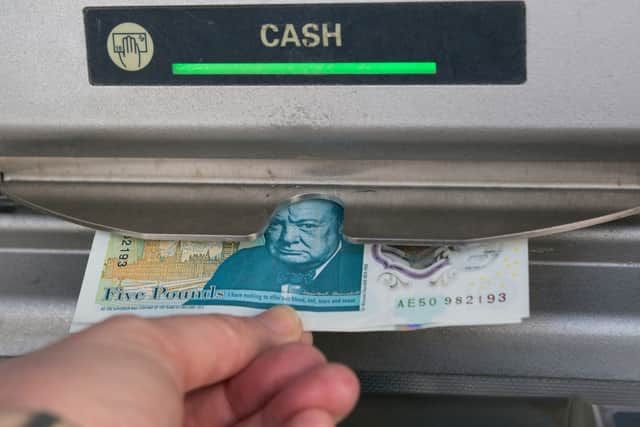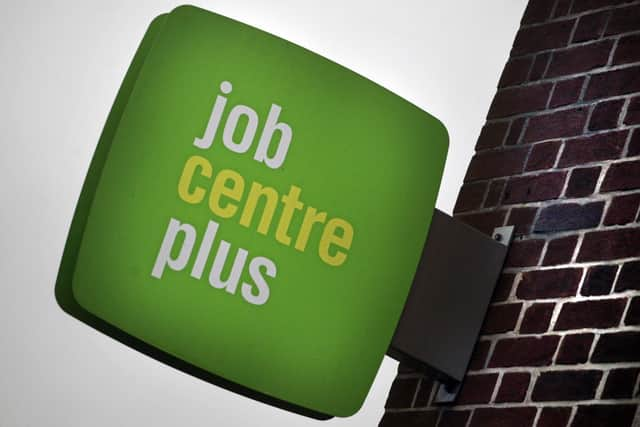Why has my ESA payment not been paid? Reason ESA payments are late - plus contact phone number
and live on Freeview channel 276
A number of claimants who receive Employment and Support Allowance (ESA) have been left wondering why their payments haven’t arrived on time.
With the cost of living crisis continuing to affect families around the UK and soaring energy bills, it’s never been more vital that these payments are paid on time.
Advertisement
Hide AdAdvertisement
Hide AdThis is what you need to know if your ESA hasn’t been paid into your account yet.
Why hasn’t my ESA payment come through yet?
The likely reason that your payment hasn’t come through yet is because of the fact that Monday was made into a bank holiday for the Queen’s funeral.
Those expected payments and credits to be paid on 20 Tuesday or 21 Wednesday September will be paid throughout the day of their expected payment date, rather than overnight.


The Department for Work and Pensions has said that there is no need for people to call, instead urging claimants to check their accounts later on in the day.
Advertisement
Hide AdAdvertisement
Hide AdA spokesperson for the department added that payments should arrive within a working day.
What if my payment never arrives?
If you wait the appropriate amount of time for your payment and it still hasn’t arrived, then you should get in touch with Jobcentre Plus.


You can do this via:
- Telephone, on 0800 169 0310
- Textphone, on 0800 169 0314
- Relay UK, for those who cannot hear or speak on the phone, on 18001 and then 0800 169 0310
- British Sign Language video relay service which you can do on your computer
What are ESA payments - who is eligible?
ESA payments are for people who have a disability or health condition that affects their ability to work.
These payments offer:
- Money to help with living costs if you’re unable to work
- Support to get back into work if you’re able to
You can apply for what is called “new style” ESA if you’re under State Pension age and you have a disability or health condition that affects how much you can work.
You’ll also need to have both:
- Worked as an employee or have been self employed
- Paid enough National Insurance contributions, usually in the last two to three years - National Insurance credits also count
You cannot get “new style” ESA if you:
- Claim Jobseeker’s Allowance
- Claim Statutory Sick Pay (SSP)


Advertisement
Hide AdAdvertisement
Hide AdIf your SSP is set to end then you can apply for “new style” ESA up to three months beforehand. You’ll start getting “new style” ESA as soon as your SSP stops.
You can apply for ESA regardless of whether or not you’re currently in work, although there are some conditions you’ll need to be aware of if you’re claiming ESA whilst working.
You can usually work whilst claiming ESA if both conditions are met:
- You work less than 16 hours a week
- You do not earn more than £152 a week
You can undertake as much voluntary work as you like, although you should tell Jobcentre Plus about any work, including volunteering, when you make your claim.
Advertisement
Hide AdAdvertisement
Hide AdIf you’re already claiming ESA and want to start working, then you’ll need to fill in the ESA permitted work form, which you can find on the Government website, and send it on to Jobcentre Plus.
How do I make a claim for ESA?
You can apply for ESA on the Government website, and you’ll need:
- Your National Insurance number
- Your bank or building society account number and sort code - you can use a friend of family member’s account if you don’t have one
- Your doctor’s name, address and telephone number
- A fit note (sometimes called a sick note or a statement of fitness for work) if you’ve not been able to work more than seven days in a row because of a disability or health condition
- Details of your income, if you’re working
- The date your SSP ends, if you’re claiming it
After you’ve applied, you’ll be contacted via phone and instructed when to give evidence and where to send it.
If you’re unable to make your application online then you can call the Jobcentre Plus new claims helpline on:
- Telephone, on 0800 055 6688
- Textphone, on 0800 328 1344
- Relay UK on 18001 then 0800 055 6688
- British Sign Language video relay service on your computer
Advertisement
Hide AdAdvertisement
Hide AdAfter you’ve made your application, the DWP will be in touch within 10 days. If you’re eligible for ESA then you’ll be given an appointment that you must attend - usually it’ll be over the phone with a work coach from your local Jobcentre Plus.
Your work coach will explain what you need to do and will create an agreement with you called a Claimant Commitment, which you must agree to.
At your appointment, you’ll be asked to:
- Explain how your illness or disability affects your ability to work
- Provide medical evidence
- Agree to tell your local Jobcentre Plus if your circumstances change
If you’re not eligible, the DWP will send you a letter within 10 working days of your application to explain why.
Comment Guidelines
National World encourages reader discussion on our stories. User feedback, insights and back-and-forth exchanges add a rich layer of context to reporting. Please review our Community Guidelines before commenting.
